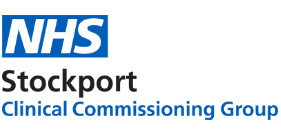Target Audience/Eligibility Criteria
This training is essential for any Health Care Assistants, Assistant Practitioners, Care Support Workers and those giving support to clinical roles in the NHS where there is any direct contact with patients and who started in a Health position after 1st April 2015. It is highly recommended that all support workers complete the Care Certificate (see further information). Regulated staff (e.g. Doctors, Nurses, Social Workers, Occupational Therapists) gain similar skills and knowledge within their professional training so they do not need to also achieve the Care Certificate.
“CQC expects providers to induct, support and train their staff appropriately. In our guidance for providers on how to meet the regulations, we are explicit about our expectation that those who employ health care support workers and adult social care workers should be able to demonstrate that staff have, or are working towards, the skills set out in the Care Certificate, as the benchmark for staff induction.”
The Care Certificate Outline:
The Care Certificate is an identified set of standards that health and social care workers adhere to in their daily working life. Designed with the non-regulated workforce in mind, the Care Certificate gives everyone the confidence that workers have the same introductory skills, knowledge and behaviours to provide compassionate, safe and high quality care and support.
The Care Certificate was originally developed by Skills for Health, Health Education England and Skills for Care. In 2025 a review of these standards was undertaken by Skills for Health and Skills for Care with input from NHS England and the Department for Health and Social Care. The revised Care Certificate is now based on 16 standards, all of which individuals need to complete in full before they can be awarded their certificate:
- Understand your role
- Your personal development
- Duty of care
- Equality, diversity, inclusion and human rights
- Work in a person-centred way
- Communication
- Privacy and dignity
- Fluids and nutrition
- Awareness of mental health and dementia
- Adult safeguarding
- Safeguarding children
- Basic life support
- Health and safety
- Handling information
- Infection prevention and control
- Awareness of learning disability and autism
Each standard is underpinned by full learning outcomes and assessment criteria.
Duration:
During the piloting of the Care Certificate in 2014, the indication was that for a full-time member of staff, the average amount of time taken to complete the Care Certificate was 12 weeks.
It is likely that employers will find that the time taken to complete the certificate will vary depending upon a range of factors, including; the hours worked by the learner, teaching methods chosen, previous educational achievement, resources and opportunities for assessment, and the availability of assessors.
Booking Process/Additional Information
- All the standard documentation and guidance can be found on the Skills for Health Website – Care Certificate – Skills for Health including; workbooks, self-assessment tools, assessor framework, certificate template and FAQs. Information including an introductory video and simple toolkits for learners and assessors are available at Care Certificate -elearning for healthcare. Please note free e-learning to help with the knowledge element of the Certificate is available, there is no need to pay – all are available from e-lfh (use the above link), others may have been completed already as part of the mandatory training requirements.
- The approach used to deliver the learning required to meet the outcomes of the Care Certificate Framework and ensuring that there is a record of the assessment decisions that is auditable would be determined by the employer. Skills + Knowledge = Care Certificate. Skills: A workplace assessor will need to assess the support workers ability to demonstrate the relevant skills in the work place. Knowledge: eLearning and other distance training tools such as the work books may show the support worker has the knowledge to understand the theory behind those skills.
- In order to be an Assessor the person must themselves be competent in the standard they are assessing. For some assessors this will be by virtue of holding a qualification related to the role for others it will be by virtue of the designation. However, this doesn’t mean that in every case the same person is competent to assess every standard. For example it may be necessary to use a different assessor to assess Standard 12 – Basic Life Support to any of the other Standards.
- Should existing staff employed before the Care Certificate was introduced do the Care Certificate? The Care Certificate is aimed at those new to health and adult social care, with no previous experience. For staff employed before 1 April 2015, they will already have completed the previous training required for induction. Employers are responsible for judging whether the jobs of individual staff require them to complete extra work to achieve the standards within the Care Certificate. If individuals have the competences and knowledge required for the Care Certificate the employer can choose to credit them with having obtained the Care Certificate.
- Should staff new to an employer but with previous health or adult social care experience do the Care Certificate? For those joining a health and adult social care organisation with previous experience, it is the new employer’s responsibility to check that the new worker can evidence past learning and identify any outstanding training and assessment needs. In some cases this may mean that the employer will require the individual to complete the Care Certificate.
- If someone has Level 2 or Level 3 Diplomas in Health and Social Care should they do the Care Certificate? The qualification will have covered some but not all of the Care Certificate. Employers should use the Mapping Document and Self-Assessment Tool to identify gaps and arrange any additional training and / or workplace assessment needed.
